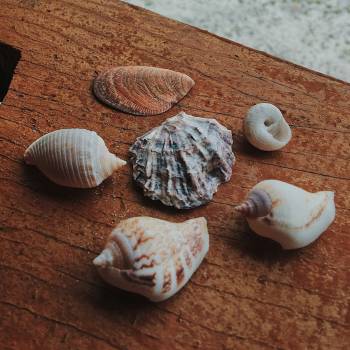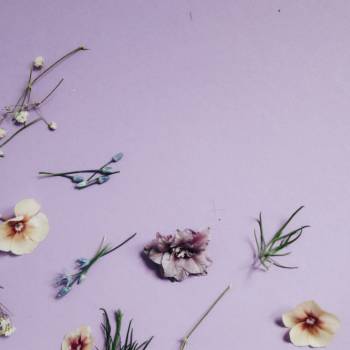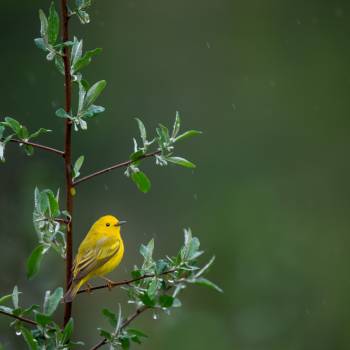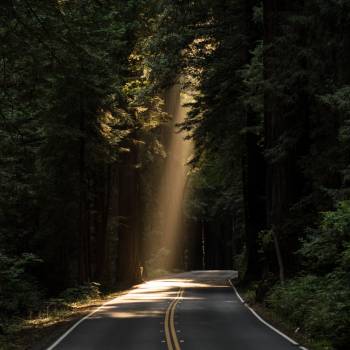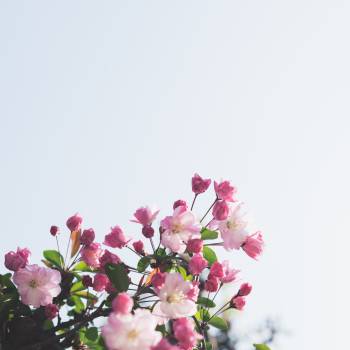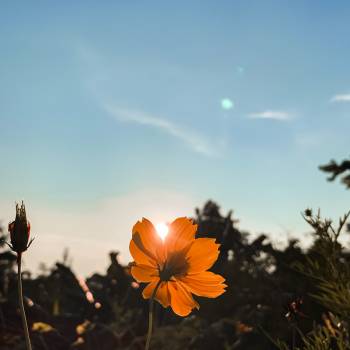What is it about Masjid Al-Aqsa, the “Furthest Mosque”, that tugs at our heartstrings?
Every Muslim dreams of witnessing the majestic Golden Dome and the striking mihrab at Al-Qibly within the ivory compound graced with olive trees, laden with the weight of a history that is equal parts terrible and beautiful.
We want to gaze with starry eyes at the western wall with its iron ring where it is said Jibril عليه السلام tied the enigmatic beast Burraq on the Night of Mi ’raj, and we yearn to pray within the blessed sanctuary that echoed the “Allahu Akbar” of all the Prophets that ever walked the Earth.
This is the blessed city of lush hills and valleys where both Ibrahim and Zakkariyah عليه السلام received glad tidings of sons in their old age, where the amazed Queen of Sheba accepted faith in the magnificent kingdom of the Prophet-King Suleiman عليه السلام, and where baby Isa عليه السلام defended his noble mother from slander.
The Messenger of Allah (ﷺ) said, “How blessed is Al-Sham”!
The Companions رضي الله عنه asked, “Why is that”?
The Messenger (ﷺ) replied, “I see the Angels of Allah spreading their wings over Al-Sham”.
Ibn Abbas رضي الله عنه added, “And the Prophets lived therein. There is not a single inch in Al-Quds (Jerusalem) where a Prophet has not prayed or an Angel not stood”.
[Tirmidhi, Ahmad]
And Allah سُبْحَانَهُ وَتَعَالَى describes it as,
“The land that We have blessed for all the worlds.”
[Al-Anbiya: 71]
Allah سُبْحَانَهُ وَتَعَالَى attributes the barakah within and around this land to Himself, which He does not do even for Masjid Al-Haram!
According to Ibn Al-Jawzi, it is called the “Holy Land” (Al-Muqqadasa) because it is Al-Mutahhirah; simply praying there purifies you of all of your sins, which is a reward you get out of an accepted Hajj.
Here are five life-changing gems that can be derived from the rich and turbulent history of Al-Aqsa, tying us with intricate threads to the lives of the Prophets, their companions, and epic believers who sacrificed for Allah’s Deen through the ages.
Pure intentions get you far
The heartfelt du’a of Suleiman عليه السلام when he finished re-building Al-Aqsa benefits the Ummah even today. From Ibn Majah, we learn he asked for 3 things; sound judgement in harmony with Allah’s Judgement, a customized kingdom like no other to spread Allah’s word, and “that no one should come to this Masjid, intending only to pray there, but he would emerge as free of sin as the day his mother bore him.”
Then the Prophet (ﷺ) said, “Two prayers were granted, and I hope the third was also granted.”
[Ibn Majah 1408]
This reminds us to perform the beautiful and beneficial acts of worship prescribed by Allah while seeking His Face and His customized rewards.
Du’a and righteousness; the formula for miracles
Allah has blessed us with the tool of du’a, to help us mentally reframe what seems “impossible to us” to “anything is possible for Allah.”
Prophet Zakkariyah عليه السلام had always found exquisite comfort in talking to Allah, and he never gave up, even though he had grown old and still did not have a righteous son and heir.
The young student of knowledge, Maryam عليه السلام another devoted slave to Allah, inspired him with words of conviction from her own blessed mihrab in Masjid Al-Aqsa.
And so, he made a beautiful du’a that Allah accepted, with His Perfect Wisdom and timing. This teaches us that when we combine unshakable faith and a righteous lifestyle with sincere supplication, we are always winners, whether the answer comes in this world or as an eternal reward in the Hereafter.
Allah raises us through hardships
Glorified (and Exalted) be He (Allah) Who took His slave (Muhammad ﷺ) for a journey by night from Al-Masjid-al-Haram (at Makkah) to the farthest mosque (in Jerusalem), the neighbourhood whereof We have blessed, in order that We might show him (Muhammad ﷺ) of Our Ayat (proofs, evidences, lessons, signs, etc.). Verily, He is the All-Hearer, the All-Seer.
[Al-Isra: 01]
This glorious Night Journey honoured our Prophet during the most difficult time of his life, as he grieved the loss of his beloved wife and uncle and returned from Ta’if on a mission that humiliated and physically harmed him.
Among the many treasures of this night, Rasulullah ﷺ was established as Imam Al-Mursaleen; the leader of the Prophets and Messengers. He led the noble Prophets in prayer towards Al-Aqsa, dignified as the first Qiblah.
From there, began the miraculous journey ending with a direct conversation with the Lord of the Worlds, who sent him ﷺ back with incredible gifts for us, including the 5 daily prayers – our port in all storms.
This is a wonderful manifestation of the Quranic promise:
“For indeed, with hardship [will be] ease [i.e., relief].”
The fact that Allah chose Al-Aqsa as our first Qiblah, also revered by the Jews of Medina, displays our approach with the People of the Book (Jews and Christians); to those who mean no harm towards us, we soften their hearts based on the similarities in our faiths.
Islam is enough to dignify us
Anyone who studies the biography of Caliph Umar رضي الله عنه knows him as a strong personality, with an acute sense of right and wrong seconded by Revelation. After accepting the keys to Jerusalem in a most humble state, he made it a haven for its inhabitants, regardless of their faith, through the famous Al Umariyyah covenant. Legendary Islamic conquerors like Salahuddin Al Ayyubi followed this example, not stooping to the brutality that characterized, for instance, the 1099 massacre of Muslims and Jews by the European crusaders. We don’t adopt the ruthless ways of our enemies, neither do we seek validation through other than Islam.
Don’t lose hope and humanity
The value of human life is even greater in the Sight of Allah سُبْحَانَهُ وَتَعَالَى than His most blessed houses of worship.
Once, the Messenger of Allah (ﷺ) looked at the Ka’bah and said,
“How great are you and how great is your sanctity! Yet, the believer has greater sanctity to Allah than you. Verily, Allah sanctified you once and sanctified the believer thrice in his life, his wealth, and to not assume evil about him.”
[Shu’ab al-Imān 6196]
As Dr. Omar Suleiman mentioned in a khutbah, “More sacred than Al-Aqsa itself, are the necks of our Palestinian brothers and sisters under the knees of Israeli troops.”
These people are more than statistics, and their stories continue to matter and shake the world long after the last hashtag trends.
Al-Bara’ reported: The Messenger of Allah (ﷺ) said,
“The passing of the world is less significant to Allah than the killing of a believer without a just cause.”
[Sunan Ibn Mājah 2619]
We may burnout when advocating their cause and lose momentum- but they will never stop mattering to Allah سُبْحَانَهُ وَتَعَالَى.
A true Muslim would never “move on” from any humanitarian crisis, but especially that in Holy Land, which should be a constant thorn in our hearts.
“Who is more cruel than the one who prevents the mosques of Allah from His name being recited therein, and strives for their destruction? It was not for such men to enter them except in awe. For them, there is disgrace in this world, and for them, there is a mighty punishment in the other world.”
[ Al-Baqarah :144]
For those who feel hopeless, don’t forget Who your Lord and theirs are.
Allah has appointed Angels that bring comfort and blessings upon the people of Ardh Ash-Sham.
Remember, as the filthy boots of the occupying soldiers tramped in, the picture of the man who acted as if they did not exist, so immersed was he in talking to his Rabb. These are the people Allah chose.
The Prophet (ﷺ) honoured them with this hadith:
“There will always remain a group in my Ummah always upon the Truth, always a thorn in the side of their enemies (because they can’t be broken), they are not harmed by those who betray them.”
The Sahabas asked, “Who are these people, Ya Rasulullah ﷺ ?"
He said ﷺ, “It is the people in the Holy Land and the people around the Holy Land.”
[ Paraphrased, from Ahmad]
The Messenger of Allah (ﷺ) also said regarding the inhabitants of Al-Quds,
“They and their wives, children, and slaves (male and female) are in ribat (guardians, literally a fort) in the cause of Allah”.
[Tabarani]
In all appearances, these prisoners, these orphans, these tortured and oppressed people have nothing.
But in Islam, we believe in the Unseen, which transcends the apparent – Allah has unimaginable rewards in store for His oppressed slaves.
With everything taken from them, they grow stronger in holding on to what can never be taken away – their belief in Allah, their certainty in His Promises, the endless pleasure that awaits them at the end of their arduous journey.
As writer, Nur Jihan Li, beautifully stated about the defenders of the Blessed Land,
“You think you’re taking their land
When in fact you’re giving them plots of paradise…
You think you’re taking their freedom
When in fact you’re giving them honour in the Eyes of their Lord.”
Never forget, one dip in Jannah is all it takes to erase worldly trauma from our memories.
Allah’s Messenger (ﷺ) confirmed,
“…Then, the most miserable people in the world among the people of Paradise will come on the Day of Resurrection to be dipped in Paradise, then it will be said: O son of Adam, did you see any hardship? Did you have any distress? He will say: No, by Allah, my Lord! I did not once see hardship or distress.”
[Sahih Muslim 2807]
Conclusion: Self-reflection is your duty
Some of them never woke up after the silent bombs fell on the open-air prison of Gaza.
As Muslims, we stand in solidarity with all oppressed people on Earth, but there is something especially evil about the attacking worshippers at the most vulnerable state in their blessed sanctuary.
We observed morally bankrupt politicians (including some Muslim governments) turning a blind eye.
We witnessed grenades disrupting the peace of prayer on the 27th Night of Ramadan 2021.
We heard the extremist chants of Zionist settlers and heard the merciless bursts of gunfire.
We helplessly watched innocent people thrown from their ancestral homes.
We wept as flames desecrated one of our holiest sites.
We saw their children break down when remembering the Eid attacks, a day that should have been full of joy.
So, where does this leave us?
Sincerely ask yourself the question: what can I do?
Because we will be taken into account for whatever we could do but did not do.
The Prophet (ﷺ) specified that,
“For three Masjids a special journey may be undertaken: The Sacred Masjid (Ka’bah), my Masjid and Masjid of Jerusalem (Al-Aqsa).”
[Muslim, Bukhari, Abu Dawud]
Of course, we can intend to travel to Masjid Al-Aqsa. To find solace in praying there and be a source of benefit for the sake of Allah سُبْحَانَهُ وَتَعَالَى.
Musa عليه السلام ‘s dying wish was to be a stone’s throw away from it, so if it hurts us to be unable to access this sanctified land, then know that the most spoken-about Prophet in the Quran was also prohibited during his lifetime.
The reward of a place is in two things; the virtue of the place itself and the struggle to get there. So, imagine the reward for those who live that struggle day in and day out.
Maymunah Bint Sa’d رضي الله عنه relates that she asked the Prophet (ﷺ), “O Messenger of Allah, inform us about Bayt Al-Maqdis (Jerusalem)”.
He said, “Visit it for prayer “.
She further asked, “If one of us cannot visit it, what should we do”?
He said, “If you cannot go for prayer then send some oil to be used for its lamps, will be as if he has prayed in it”.
[Ahmad, Ibn Majah, Abu Dawud, Tabarani]
Until then, ‘send oil to light its lamps’, which can be taken both literally, and figuratively to mean, support the Holy Land in whatever way you can for the sake of Allah, to uplift your brothers and sisters who are enduring the unspeakable to protect your blessed sanctuary.
Keep making du’a; the weapon of every believer, not only for Al-Aqsa but for all those suffering under oppression.
Educate yourself, learn the history of Al-Aqsa, learn of the injustices that the people of Bayt Al Maqqdis have faced and are still facing, then spread awareness in a way that aligns with the Qur’an and Sunnah.
Whether it’s through articles, discussions, fundraisers, classes for the youth, or sharing accurate posts on social media, do your part. Silence is not an option.
Claim your role in the legacy of Al-Aqsa and make it a beautiful one that will weigh heavier on your Scales than the mount on which it sits.
As poet, Asna Khaan, poignantly expresses,
“You will find the soul of the Ummah
in Al Masjid al Haram;
Our body in Al Masjid an Nabawi;
And our heart, O Al Aqsa,
You will find our heart in you.”
 Maryam Hamza
Maryam Hamza 